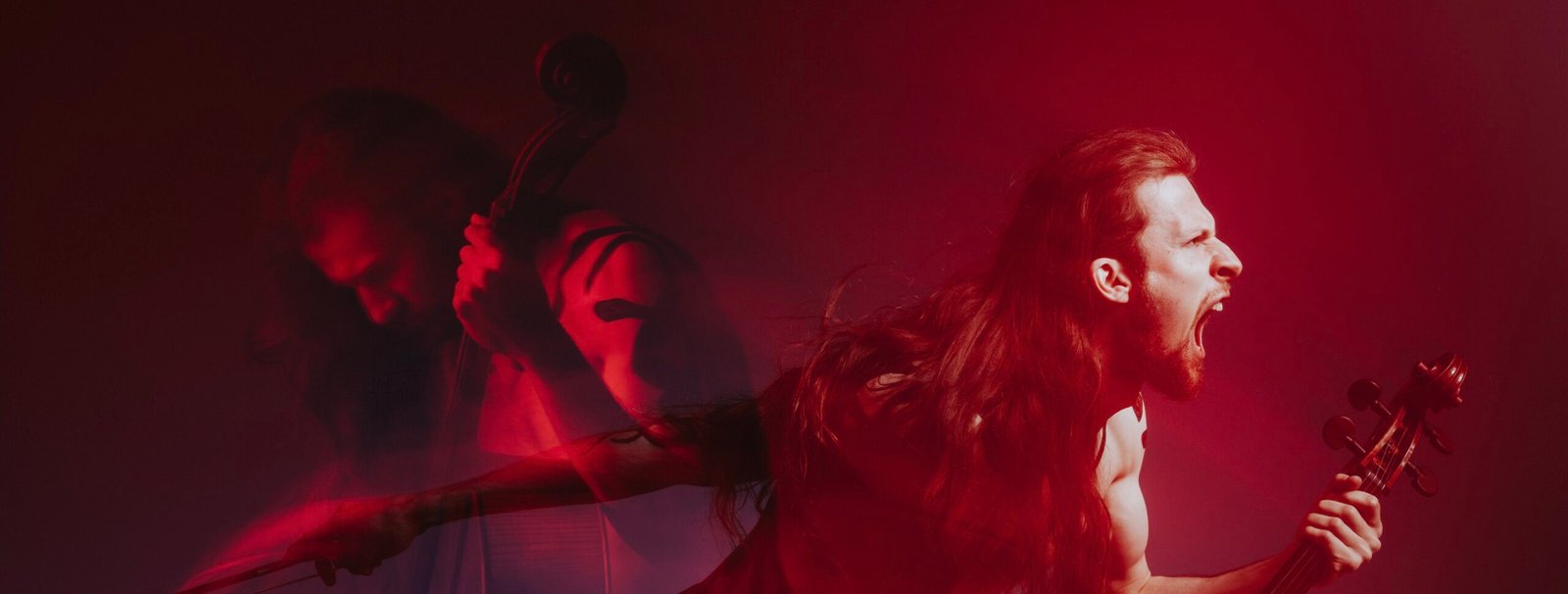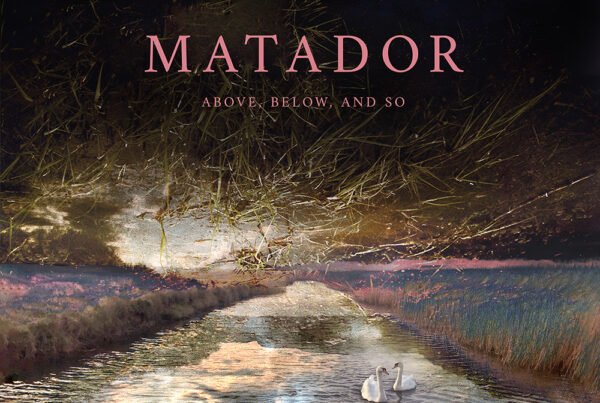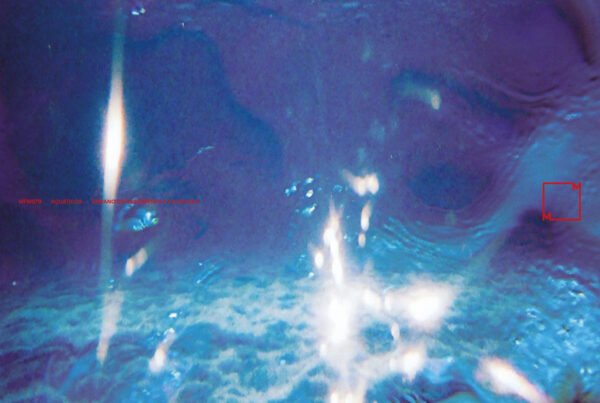Lifeblood is the rare type of album that comes alive when true artistry and creativity merge with absolute technical mastery.
Release date: October 3, 2025 | Anamnesis Arts | Website | Facebook | Bandcamp
If you’ve been an active, or even just a casual, listener of the modern prog rock and metal sphere, chances are you’ve heard Raphael Weinroth-Browne’s orchestral musings on at least twelve separate occasions. It is now an unspoken requirement for anyone putting together a prog record to ‘inquire with Weinroth-Browne about a possible feature’. Not only is he a hot commodity as a session musician, but he is also just as occupied, if not more so, when it comes to ongoing projects and solo releases. Weinroth-Browne is a musical mitochondria (the powerhouse of the cell-o) with the sheer amount of music that has his name on it in a given year. Not only is he as musically prolific as any living being can be through seemingly countless collaborations and the like, but he was the artist that nearly started a war between the EIN editorial staff and writers. That in itself is quite the feat indeed.
To briefly let you in on the EIN lore, it goes without saying we are always more than ecstatic to feature Weinroth-Browne and his music in any capacity (hence why we’re here today), one such form was as a Weekly Featured Artist. This particular article, or should I say gargantuan write-up by none other than Robert Miklos, effectively broke WordPress and thus the brains of our editorial staff, who operate through WordPress to edit and publish said article. The sheer amount of text and quotes in this specific feature for whatever reason brought WordPress to its knees in such a way that the blockquote formatting was impossible to keep in line with our standards. It prompted the conversation within the team to curtail how adventurous one may be for such an amorphous article, in which the writers always have full creative control, as is the EIN mantra. The conversation amongst us, trying to find a way to put restrictions-but-not-at-the-same-time was chaotic (as it goes against everything EIN stands for) and hilariously fruitless as you can imagine because nothing ended up coming of it at the end of the day.
Depending on how you look at it, you could say this was a byproduct of Weinroth-Browne’s distinguished and undeniably unique musical style that was enough to cause the technical hiccup and drama in the writing it inspired. It could also be due to the sheer depravity of Miklos alone, who knows. I’d like to think it was the star-crossed collision of these two entities that fueled this EIN canon event. Anyways, as funny as this all is, this isn’t why we are here. We are here to discuss Raphael Weinroth-Browne’s latest solo release, which goes to show how music is the lifeblood of everything he does and every breath he takes. Coincidentally and appropriately, Lifeblood is the title of this record.
If by some stroke of massive misfortune your ears haven’t already been blessed by Weinroth-Browne and you have no idea what to expect, he is a classically trained cellist heavily involved in the realm of metal music. Apart from his many features on a plethora of rock/metal albums, his solo music and active (and previous) projects mostly have absolutely nothing to do with metal, yet they feel heavily, purely influenced by heavy music. It is as close to the ‘metal music but without all the stuff that make it metal’ as you can get.
Essentially every sound that you hear across Weinroth-Browne’s solo endeavors, Lifeblood included, comes purely from his cello. Be it the melancholic draws of the bow across the strings, the percussive thumps from hitting its body with the side of his hand, to a variety of pedals and effects to allow the cello to speak another language. He employs loops to overlay all these various sounds he can create so that he can ad lib on top of it, only to continue doing so and before you know it, it sounds as if you’re surrounded by a full orchestra when in reality, it’s just a single individual doing it all as if it was magic; which it truly is when you think about it.
Let’s quickly put Weinroth-Browne’s two albums side by side, not for a comparison of ‘quality’ but rather for context. Worlds Within is a masterclass in musical exposition, akin to fictional literature such as Susanna Clarke’s Piranesi for example, in which the true beauty is revealed in the descriptions of the infinitesimal labyrinthine setting that the protagonist exists in without any explanation as to why (that is at first). On this particular album, the layering of dizzying, yet equally hypnotic textures led to the creation of thick, mysterious atmospheres that you could get forever lost in, as was the intention after all. The end result leaves the listener feeling as if they were consumed by a crashing tidal wave (of sound) as not-so-subtly suggested by the album artwork.
Lifeblood continues exactly where Worlds Within left off, fully embracing the lavish musical world building whilst simultaneously expanding upon it in multitudes. Not only is there incredible attention to detail in the layering and rich atmospheres, but there is so much meat in the melodies, harmonies, and compositions sitting on top of it all that it feels like you’re reading an epic fantasy novel with countless, action-packed twists and turns, never once feeling excessive. What impresses me the most is how this record is as dense as it is concise, an exceedingly difficult balance to strike, yet Weinroth-Browne effortlessly does it as if it was his true calling in life, which it most definitely is. All this being said, Lifeblood is a musical feast that keeps on giving.
The opening track is strategically the titular track, acting as a perfect introduction to and representation of the full record. The way Weinroth-Browne effortlessly harmonizes with himself, speaks volumes to his musical vision and ability. This song in particular starts off quite gloomy with the soft, weeping melodies, only to be followed by these pseudo-electronic effects (mind you he creates these sounds with his cello) to shift the pace and mood of the song whilst maintaining the same eerie character underneath. It is just astonishing to think about how every sound you hear comes from a single instrument (with the tiny exception of the bass drum on “Pyre” and “Nethereal”). It reminds me of those videos of some guy hand digging out these crazy ornate, below-ground pools with just a plastic spoon, or something along those lines. Weinroth-Browne is the musical equivalent of that with the crazy end result of this full album being born from a single instrument. The cello is obviously more than just a plastic spoon, but what I am trying to say is the sheer creativity Weinroth-Browne possesses leaves me completely astounded no matter how many times I’ve listened through up to this point in time.
Up until “Nethereal”, I was thinking that this album couldn’t get any more adventurous than it already was; little did I know that it was about to be taken three large steps forward. This track alone contains a full album’s worth of adventure that I was under-prepared for. Listening on any halfway decent audio set up (as that’s all I can afford) and devoting every ounce of your full attention makes it impossible to not get immersed, especially as the juicy string plucks thunderously reverberate with all the oomph in the early movements of this song. The stark contrast between those thunderous booms and the dead silence make me feel as if I was imprisoned in a large vat of Jell-O and someone is aggressively slapping the side of it with a big fly swatter (or something with a large surface area), causing the whole thing to pulsate in overwhelming vibrations. Not long afterwards, we get an absolute shredfest that exists in multiple stages, collectively leaving my jaw completely agape; both metaphorically and literally. “Nethereal” is easily the standout track on this stellar album and is also one of my absolute favorite songs of the year.
In most appearances up until this point, Weinroth-Browne’s unmistakable presence is typically utilized as an accessory (which is perfectly understandable for features as he would steal the show otherwise), and now he gets to fully unleash his utmost realized potential as if it was his destiny. The end result is an unforgettable modern classical album that is unlike anything else you’ve heard this year or in any period of time honestly. I’d like you to even try to name a single other release this year that has as much unquestionable character and vigor as Lifeblood; a pointless task to ask of anyone because it simply cannot be done.






